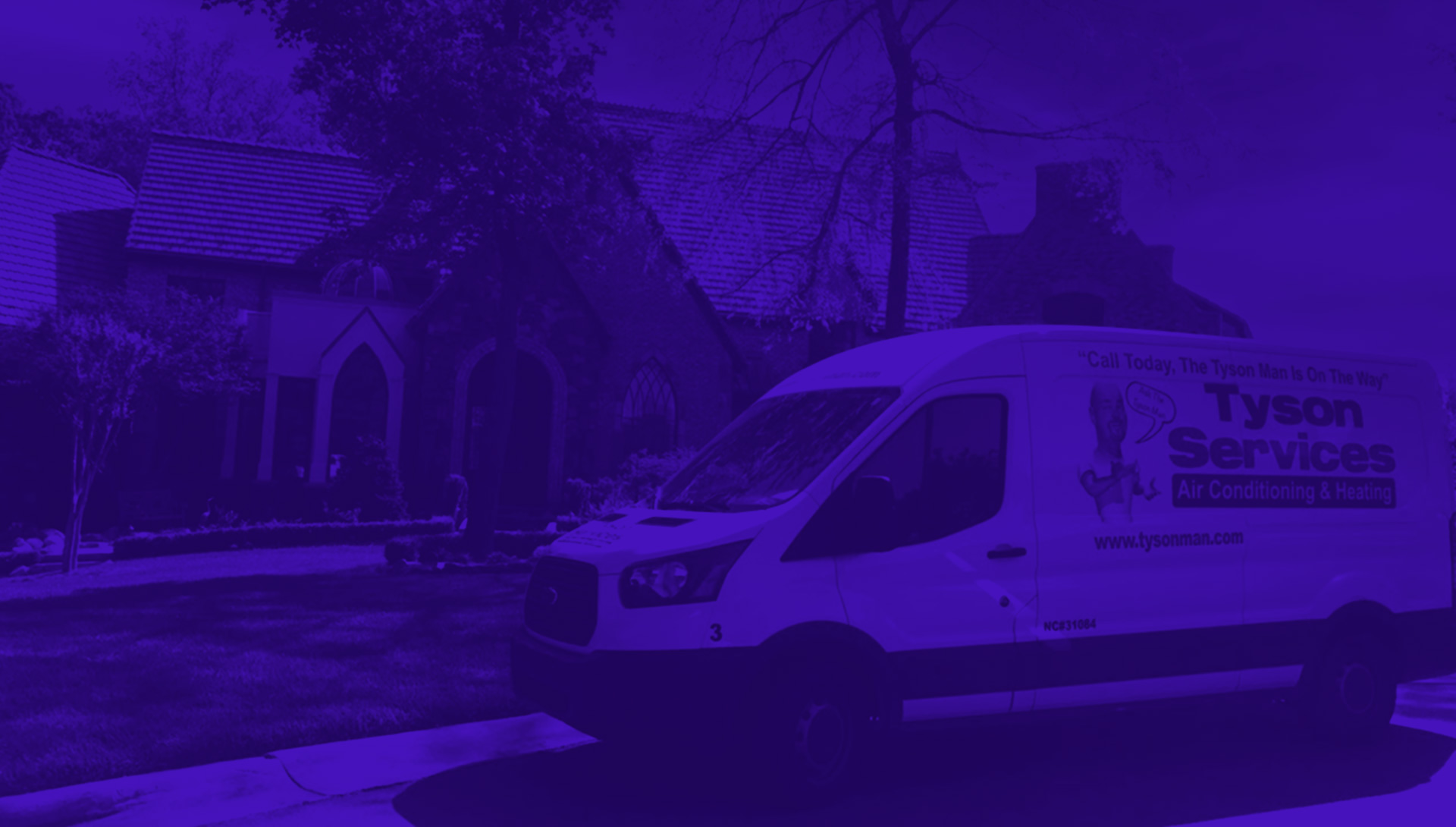
Charlotte Indoor Air Quality
Enjoy Better Air Quality in Monroe & the Surrounding Areas
Tyson Services offers comprehensive services to improve your indoor air quality in Charlotte, Monroe, and surrounding areas. Our skilled Charlotte HVAC technicians can provide new equipment installation and HVAC maintenance services to remove contaminants from the air and help your family breathe easier.
Our family-owned business has served the indoor comfort needs of the local community for decades.
If you are concerned about poor air quality, contact us at (704) 285-1812 to learn how we can help your family breathe easier with Charlotte indoor air quality services.
Why Indoor Air Quality Matters
Poor indoor air quality can lead to various health issues, including respiratory problems, allergies, and fatigue. According to the Environmental Protection Agency (EPA), indoor air can be significantly more polluted than outdoor air, making it essential to address potential sources of contamination. By prioritizing indoor air quality, you create a healthier environment for your family.
Signs of Poor Indoor Air Quality
In Charlotte, NC, where seasonal weather and urban living can affect air quality, maintaining a healthy indoor environment is essential for your family’s comfort and health. Poor indoor air quality (IAQ) can have subtle and not-so-subtle signs that homeowners often overlook. As a professional HVAC company serving Charlotte, we’ve identified some key indicators of poor IAQ and how to address them.
- Persistent Allergies or Respiratory Issues: If you or your family members experience frequent sneezing, coughing, watery eyes, congestion, or worsened asthma symptoms,
it could be due to dust, pollen, pet dander, or mold circulating in your home. Poor ventilation or dirty air filters may exacerbate these issues. - Musty or Unpleasant Odors: Lingering smells, especially a musty odor, could indicate mold or mildew growth in your HVAC system or damp areas of your home. These odors are often a sign of excess humidity or inadequate ventilation.
- Dust Buildup: Excessive dust accumulation on surfaces, furniture, or vents may signal that your HVAC system isn’t filtering air effectively. This can happen if filters are clogged or your system needs maintenance.
- Uneven Temperatures and Stale Air: If certain rooms in your home feel stuffy or have poor airflow, it may be a sign that your HVAC system isn’t distributing air properly. Poor airflow can trap pollutants in certain areas, contributing to unhealthy IAQ.
- Frequent Headaches or Fatigue: Prolonged exposure to poor air quality can lead to symptoms such as headaches, dizziness, or fatigue. This could be caused by volatile organic compounds (VOCs) from cleaning products, paint, or off-gassing furniture, combined with poor ventilation.
- Visible Mold or Excess Humidity: Seeing mold growth around windows, on walls, or near vents is a clear indicator of poor indoor air quality. Excess moisture can create an environment where mold and bacteria thrive, impacting the air you breathe.
- Increased Allergy Symptoms During HVAC Operation: If symptoms worsen when your HVAC system is running, it may be circulating pollutants, allergens, or mold spores. Dirty ducts or unmaintained systems are common culprits.
What Makes Tyson Services a Community Name:
-
Emergency Services Available
-
Award Winning Services
-
Free Estimate for New Installs
-
Pricing Transparency


